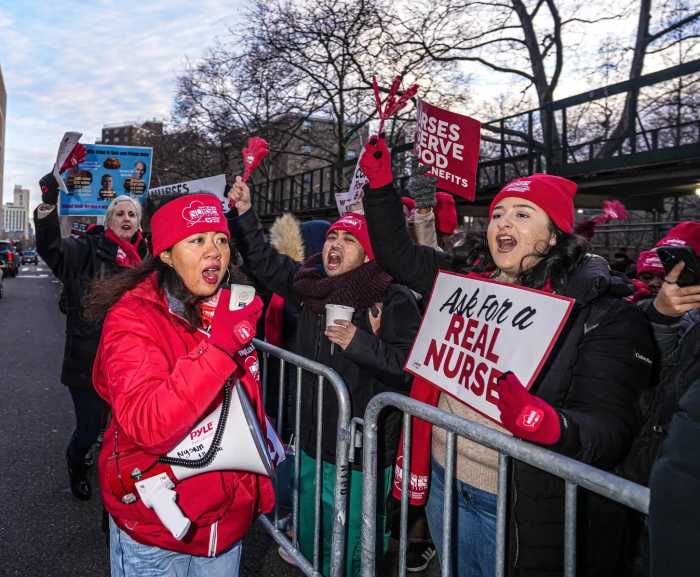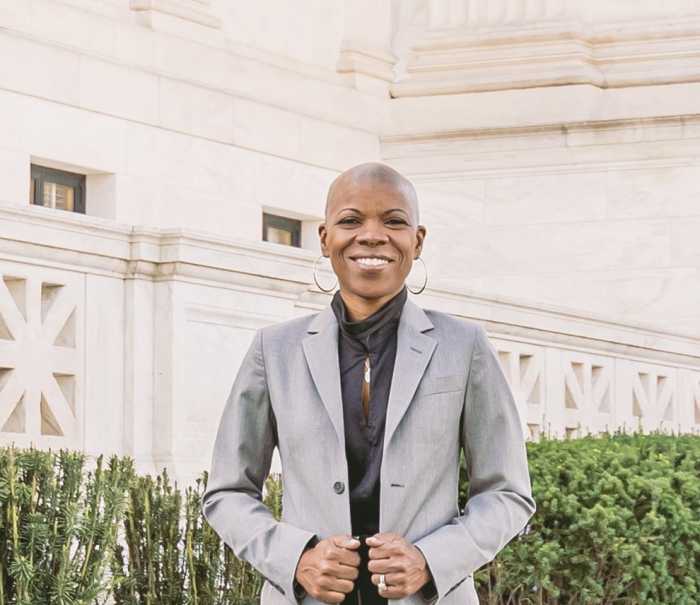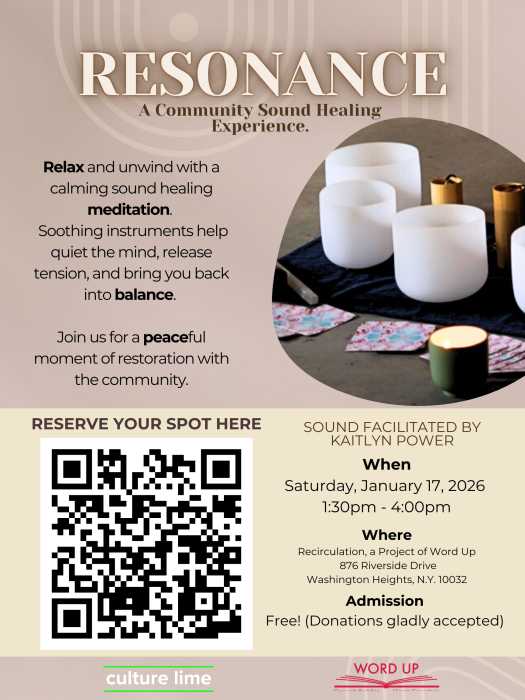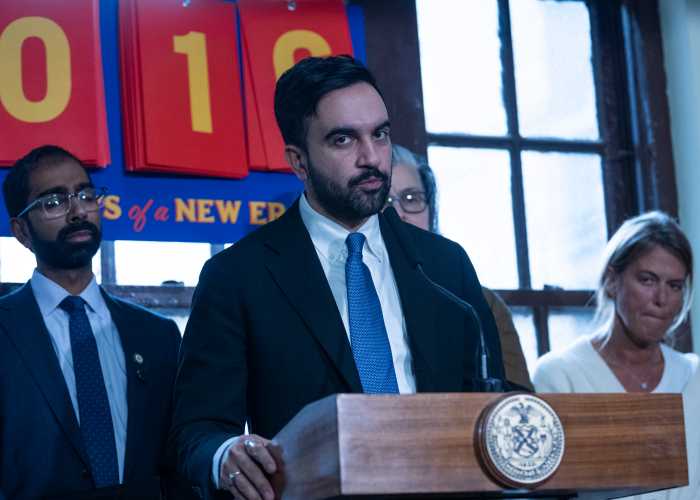It seems that every article about the New York Court of Appeals ruling against same-sex marriage in Hernandez v. Robles has repeated Chief Judge Judith Kaye’s final line in dissent that “future generations will look back on today’s decision as an unfortunate misstep.” Regrettably, few reporters have indicated just how large a step backward the decision is. The ruling that the New York State Constitution does not require marriage equality is bad enough, but the unfortunate precedents set in this case could impair the struggle for our equal rights for years to come.
Many have suggested that the ruling is not such a setback since the Legislature should make such decisions anyway. That position profoundly misapprehends the role of the judiciary in our society. Our legal system is designed to ensure that certain fundamental rights trump legislative action and that all citizens are entitled to equal protection under the law. Unfortunately that promise was betrayed in the Hernandez decision, and the rights and liberties of LGBT New Yorkers seriously compromised.
The due process clause of the New York State Constitution provides for judicial review any time a statute is interpreted to deny a fundamental right to a class of citizens. The U.S. Supreme Court and the New York Court of Appeals—at least in rulings prior to Hernandez—long recognized the fundamental right to marry the person of one’s choice. The courts have used that protection to strike down anti-miscegenation laws and to hold that prison inmates have the right to marry. Even the Hernandez court recognized that marriage is a fundamental right for straight couples, before ruling that it does not protect marriage equality for gay and lesbian couples.
In its landmark 2003 decision in Lawrence v. Texas, the U.S. Supreme Court ruled that, because the U.S. Constitution protects the fundamental right of consenting adults to have sexual relations with their chosen partners, sodomy laws are unconstitutional under the due process clause. The court reached that conclusion despite the fact that sodomy laws were once on the books in every state. In contrast, the Hernandez court simply declared that because there is no history of same-sex marriage in New York, the fundamental right to marry should be limited to opposite-sex couples.
In effect, the New York Court of Appeals simply assumed the outcome and then used that assumption to deny gay and lesbian New Yorkers the right to marry our partners. In doing so, the court set a precedent that any law that has historically discriminated against gay people can continue to do so, even if that outcome deprives us of fundamental rights extended to the majority. That precedent should send chills though every citizen of this state.
Once the deck was stacked, the due process argument was doomed to fail. The Hernandez court upheld the marriage law even while recognizing that it “does confer advantages on the basis of sexual preference [sic]. Those who prefer relationships with people of the opposite sex and those who prefer relationships with people of the same sex are not treated alike, since only opposite-sex relationships may gain the status and benefits associated with marriage.”
In her dissent in Hernandez, Chief Judge Kaye properly called out the majority on that argument. “Simply put, fundamental rights are fundamental rights,” she wrote. “They are not defined in terms of who is entitled to exercise them.” She pointed out that there was no historical right for interracial couples to marry when anti-miscegenation laws were struck down, but the legacy of discrimination did not justify continued violation of a fundamental right.
The equal protection clause of the New York State Constitution, as the name suggests, is supposed to guarantee that all citizens enjoy the same protection of the laws. Unfortunately the Hernandez court ruled that this principle does not protect LGBT New Yorkers in any case where the prevalent interpretation of a law discriminates against gay people, at least if there is any conceivable good reason to interpret the law that way. This ruling has profound repercussions for cases well beyond marriage equality.
For both state and federal equal protection purposes, there are three different standards of review—strict scrutiny, heightened scrutiny, and rational basis. A law implicating potential racial bias merits strict scrutiny, meaning that government must provide the most compelling reasons to justify it. Laws related to potential gender bias are subject to heightened scrutiny, not as tough a test as strict scrutiny but still a rigorous review.
Nearly all laws, however, benefit some citizens more than others. A tax exemption may benefit the poor more than the rich or an appropriations bill may provide more money for a project in one area over another. These laws are typically subject to rational basis review—the government need only show a good (and not impermissibly discriminatory) purpose. The Hernandez court ruled that laws involving or interpreted to discriminate against LGBT New Yorkers are subject only to this lowest threshold of perfunctory review. That precedent has frightening implications.
The Hernandez plurality gave two “rational” bases for the discrimination. First, the New York Legislature, in its wisdom a century ago, might have thought that since straight couples sometimes accidentally get pregnant, it is important to protect the stability of their relationships for the benefit of any unplanned children. Since gay couples having children rarely if ever accidentally procreate, those couples are already stable and do not need marriage’s protections.
Second, the Legislature could “rationally believe that it is better, other things being equal, for children to grow up with both a mother and a father.”
So, on the one hand, it is rational to discriminate against gay parents because they are responsible and do not have children accidentally. On the other hand, it is rational to discriminate against gay parents because they are not as good as straight parents. Parsing through these two weak and mutually contradictory arguments, essentially the New York Court of Appeals ruled that a long history of discrimination against gay and lesbian New Yorkers justified its continuation.
The U.S. Supreme Court, in its Lawrence sodomy ruling, also adopted a rational basis test, but held that raw discrimination against gay people could not justify upholding the law. Sodomy was a capital crime when the country was founded, and yet Justice Anthony Kennedy, a Reagan appointee, wrote that freedom of sexual expression between consenting adults is a fundamental right and that naked discrimination against the LGBT community was an equal protection violation and not a rational basis to sustain sodomy laws. It is difficult to square the Hernandez ruling with that precedent.
So, where does this “unfortunate misstep” leave gay and lesbian New Yorkers? It is a disaster. In theory, this precedent could eliminate our ability to challenge laws that deprive us of fundamental rights or deny us equal protection under the law as long as there is any “rational” basis for the discrimination. The court’s opinion calls for the Legislature to determine whether marriage equality, and by implication any fundamental right, should be extended to the LGBT community. Until this precedent is overturned, we cannot rely on the New York State courts to interpret either the due process clause or the equal protection clause to protect our rights. And we are stuck with a majority of Pataki-appointed judges on the Court of Appeals until at least 2014, no matter who is elected governor in November.
Far from being a benign passing of the buck to the Legislature, Hernandez is a hateful decision and a slap in the face not seen in New York since the era of “separate but equal” racial discrimination. The community must respond and demand change, both in the Legislature and in the appointment and confirmation of judges, or the future of LGBT civil rights in New York State looks mighty bleak indeed. Perhaps we should take a page from the conservative playbook and propose our own constitutional amendment, hearkening back to the struggle for women’s rights in the 1960s and ‘70s to push for the equivalent of an Equal Rights Amendment protecting LGBT rights in New York State.
For gay families in New York, rights delayed are rights denied. Only by channeling our anger and frustration into meaningful political action can we advance the struggle for the promise on which our country was founded—liberty and justice for all.
Michael Colosi is an attorney who lives in Manhattan.
gaycitynews.com




































